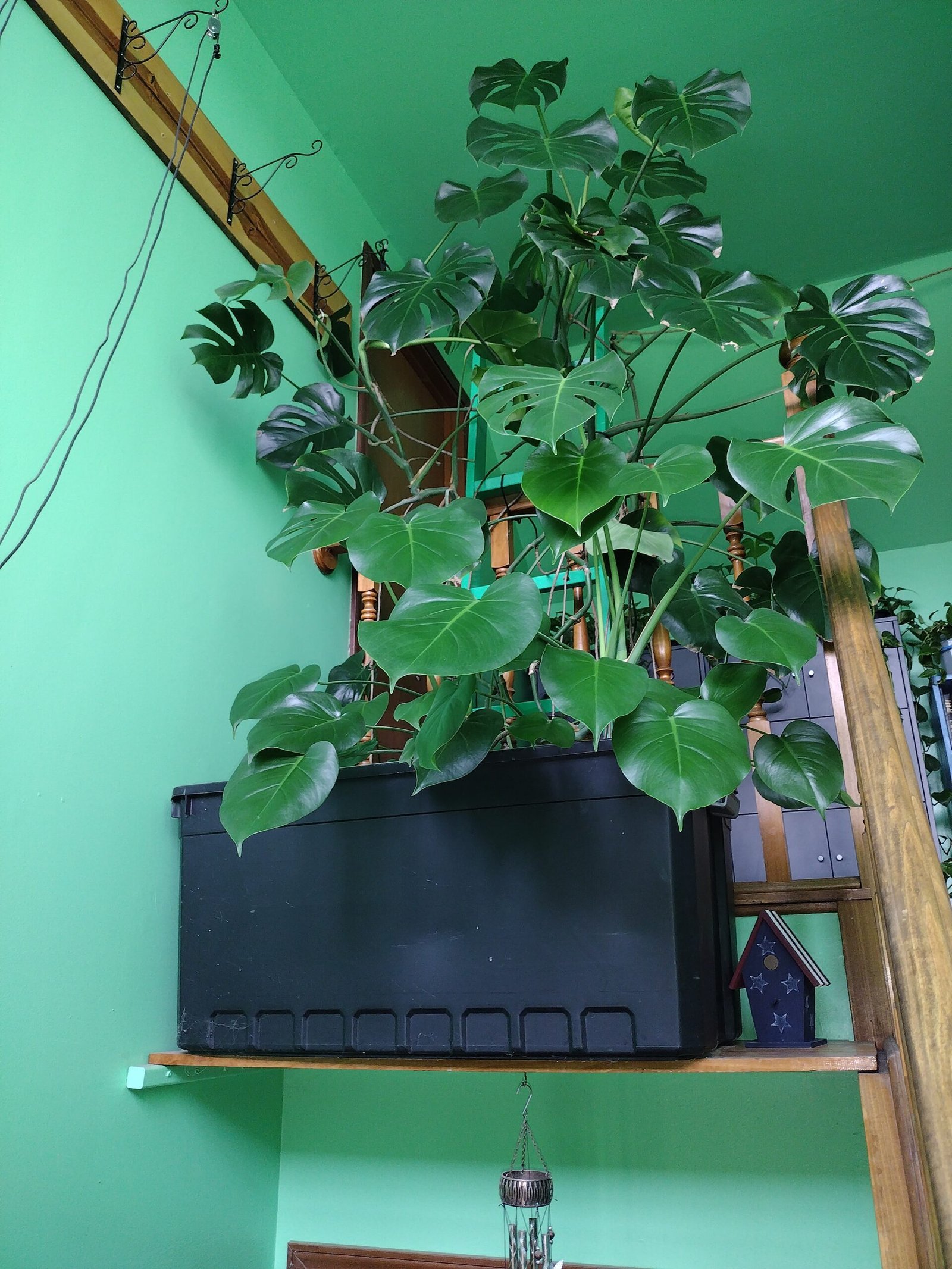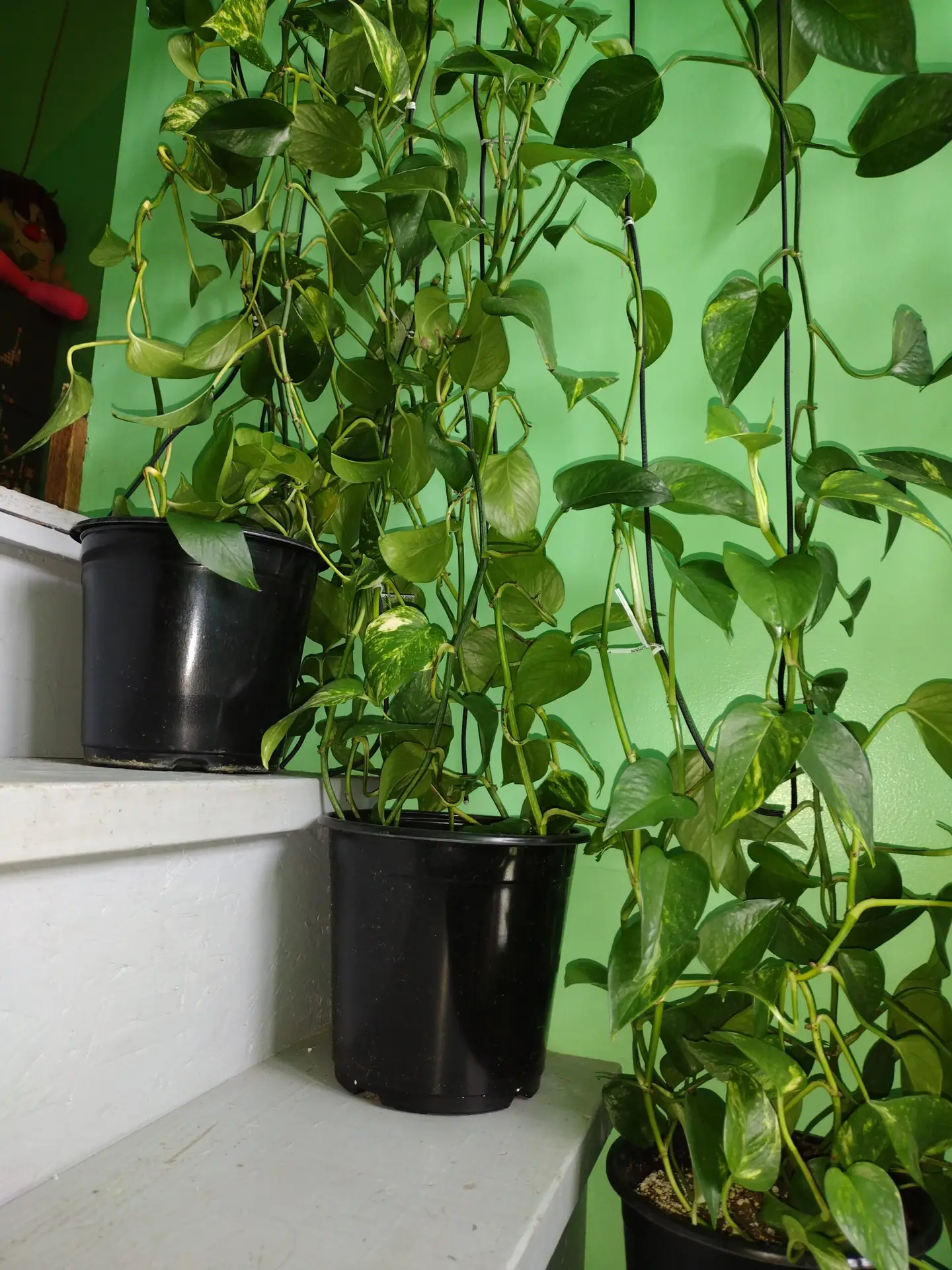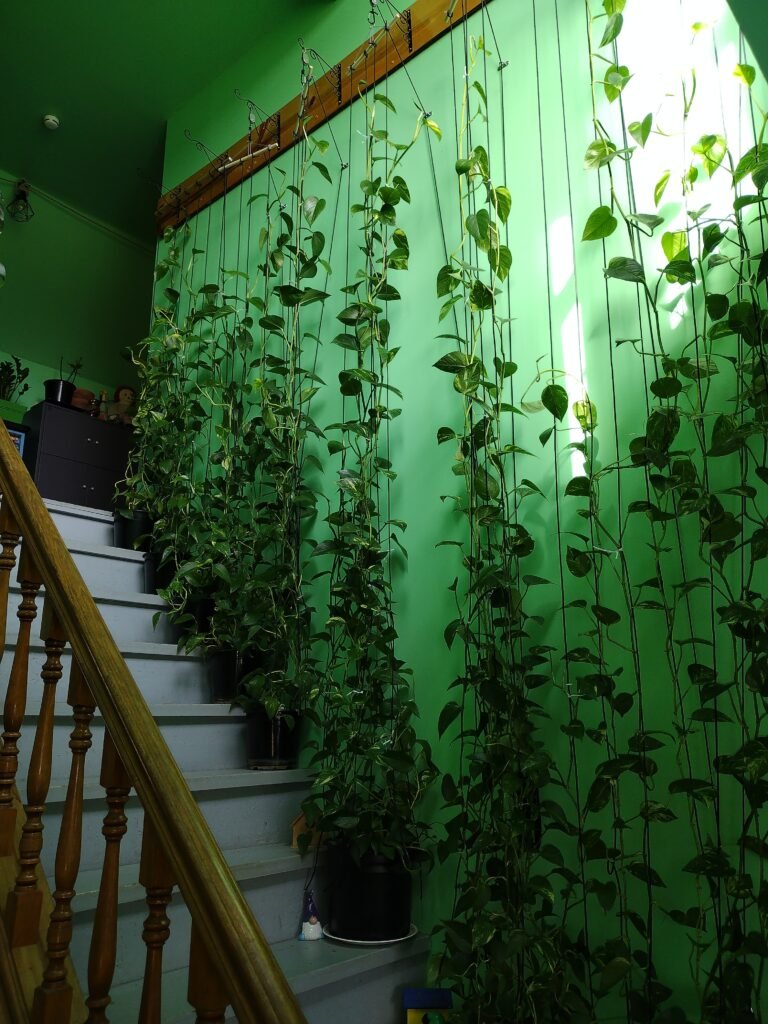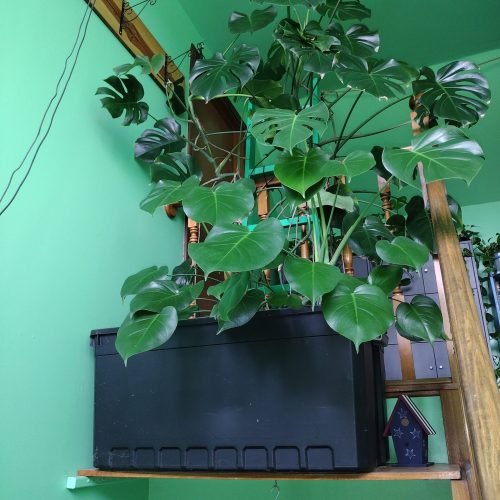If you’re dreaming of big, tropical leaves that make your space feel like a jungle oasis, look no further than the Monstera deliciosa—also known as the Swiss Cheese Plant. This gorgeous green beauty is famous for its dramatic foliage and relatively low-maintenance care. I’ve had mine for about three years now, and I love her not only because she’s easy to care for, but because her giant leaves make me feel like I live in a rainforest (or at least a plant-themed spa).
Whether you’re brand new to houseplants or looking to expand your collection, here’s everything you need to know to help your Monstera thrive.
This post contains affiliate links. If you click and buy, I may earn a small commission at no extra cost to you. I only recommend products I love. Thanks for supporting Plants and Home!
🪴 Quick Care Overview
- Light: Bright, indirect sunlight
- Water: When the bottom 2–3 inches of soil are dry (I use a chopstick to check!)
- Humidity: Moderate to high
- Soil: Well-draining mix—half Monstera potting soil, half orchid soil, with extra perlite for smaller plants
- Toxic to Pets: Yes, so keep out of reach
☀️ Light Requirements
Monsteras love bright, indirect sunlight. Too little light and the leaves won’t split or grow big. Too much light and the leaves may burn. I keep my largest Monstera a few feet from a big south-facing window with no curtains. The medium and small ones live in an east-facing window and soak up gentle morning sun.
Pro tip: Stand where your plant sits and look around throughout the day. Can you see lots of sky or direct sunlight? That’s a good sign. If your Monstera’s new leaves aren’t getting fenestrations (those natural holes or splits), it might need more light—or a boost from a grow light. Also, don’t forget to dust the leaves so they can absorb as much light as possible!
💧 Watering
Watering isn’t one-size-fits-all. It depends on your plant’s size, pot, and soil. I like to use a chopstick and poke it down close to the bottom of the pot. If it’s dry about 2–3 inches from the bottom, it’s time to water.
My routine:
- Summer: Large Monstera every 5 days, smaller ones every 7 days
- Winter: Large every 9 days, smaller ones every 12
- Always check first—better safe than soggy!
Signs of underwatering: Droopy leaves, dry/crispy edges
Signs of overwatering: Yellowing leaves, mushy stems, sad vibes
💦 Humidity & Temperature
Monsteras like it warm and a bit humid—65–85°F is their sweet spot.
I’ve experimented a lot with humidity. For my small Monstera, a pebble tray worked when she was young, but it didn’t do much once she got bigger. Now I use a humidifier for my large plant. The smaller and medium ones live by a fish tank, which seems to give them just the right humidity. Grouping plants can also help raise humidity, and while misting looks fun, it doesn’t do much unless you go all in.
🪴 Soil & Repotting
Monsteras thrive in chunky, well-draining soil. Here’s my go-to mix:
I mix half tropical soil, half orchid mix, and toss in a few generous handfuls of perlite to help with drainage—especially since I tend to overwater.
My big girl lives in a 12-inch planter on a ledge in my entryway. Her pot sits in a tote filled with pebble rocks, so I can water thoroughly and let the excess evaporate slowly. Always use pots with drainage holes, and don’t be afraid to put your plastic pot inside something prettier (or functional, like my tote).
🌿 Fertilizing
I feed my Monstera once a month during spring and summer with this liquid houseplant fertilizer. In the winter, I let her rest and skip feeding. She deserves a break, right?
✂️ Pruning & Support
I don’t prune for shape, but I do cut off dead or dying leaves. For support, I got creative—I use a ladder from an old bunk bed and tie the stems up using paracord. You can also use a moss pole, large branch, trellis, or stake—whatever suits your space and style.
🐛 Common Problems
Monsteras can run into issues like:
- Yellow leaves (overwatering)
- Brown tips (low humidity or salt buildup)
- Pests like spider mites, aphids, or whiteflies
When that happens, I use this fungicide. I spray it on the plant and the soil if I see bugs or anything weird. Catch it early, and your Monstera will bounce back like a champ.
🐾 Pet Safety
Unfortunately, Monsteras are toxic to cats and dogs due to calcium oxalates. If you have pets, try placing your plant:
- On a high ledge
- In a hanging basket
- Or in a tote (like mine) where curious paws can’t reach
🪴 Final Thoughts & Encouragement
I’ve had my Monstera for three years now, and she’s forgiven all my beginner mistakes. She even gave me new plants! Once, I placed her in my too-dark living room and relied on a grow light—until my family kept turning it off to watch TV. She got sad, dropped some leaves, but now? She’s thriving again in my entryway jungle.
Coming home to her—and my six excited dogs—makes me feel like I’m walking into Jumanji (but in a good way).
Don’t be afraid to try. Monsteras are resilient, rewarding, and once they get what they need, they’ll grow like crazy. I’d love to see your Monstera babies and how you’ve styled them. If you have any questions, drop a comment or tag me on social media!
Happy growing! 💚





